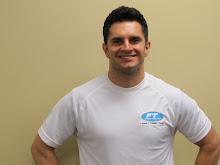Breathing fully and deeply is important in helping you reach your fitness goals. It will have an effect on your workout and how you feel during exercise. If you aren’t focusing on proper breathing technique, exercise may seem more difficult than it needs to. And you may not be taking in enough air to help ignite the burning of fat. Here are some commonly asked questions about how to breathe during exercise:
1. During the “effort”/exertion phase, what’s better: breathing in or breathing out?
Most professionals will tell you to breathe out on the effort phase of an exercise. That means if you’re doing an abdominal crunch, you would breathe out when lifting the trunk. However, this isn’t an absolute must. If you feel more comfortable breathing out during the effort, go for it. The most important thing is that you breathe.
2. What will happen if I don’t breathe enough?
You could find yourself with side stitches. The more rigorous the activity, the more you should breathe and in a steady pattern. Get into a regular rhythm and keep the pace constant. It will help you supply your body with the right amount of oxygen and give you something to focus on. And, your brain will function better too.
3. Is it possible to breath too much or too often?
Well, you could hyperventilate…but it’s pretty unlikely during exercise. When walking or running, get into a steady pattern of breathing out on every fourth step (or any number that feels comfortable for you). For each activity you do, there will be a pattern that feels right. Find that pattern and stick to it.
4. Should I hold my breath during weight work?
No. Holding your breath while bearing down can push blood pressure up significantly. You can also reduce blood flow to your brain and increase pressure in your chest – both of which could be dangerous while exercising.
Pay attention to your body: be aware of your breathing during exercise
The best advice is to become aware of your breathing during your exercise sessions. Think about pushing air out forcefully more than on sucking it in. Breathe in through the nose but realize that when you start working harder you may not be able to bring in enough air that way. If needed, breathe through your mouth. The more serious you are about working out, the more important proper breathing is. Deep breathing can result in a 1-2% competitive edge increase among athletes. That may just mean the difference between winning and losing. So, get into a rhythm, stick to it each time you exercise and you’ll enjoy your workouts more.
By Michele Silence. DietChannel.com. Sept 2006.
Edited for content by FT Lake Forest Staff.








